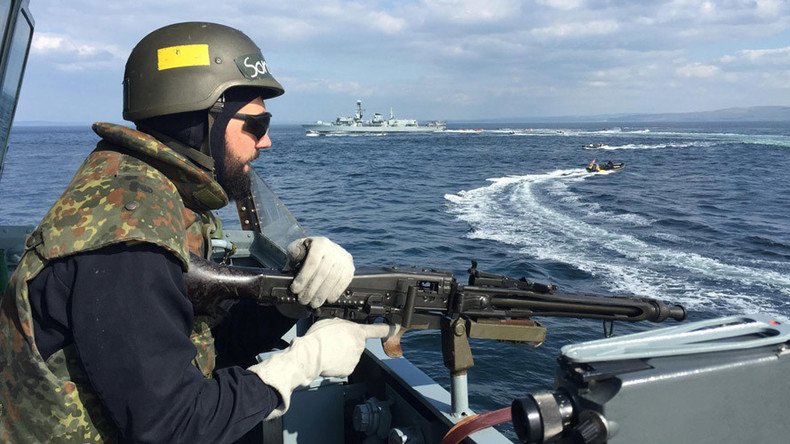Secret NATO manual accidentally leaked to Scottish boat operators - report

A NATO manual marked “restricted” and full of codewords, ciphers, coordinates, and radio frequencies for its war drills this month somehow made its way into the email inboxes of fishermen and ferry operators, according to the Sunday Herald.
Oops: MoD accidentally releases secret Nato manual with codewords, ciphers and co-ordinates https://t.co/KjUyqyGwv4 via @newsundayherald
— Rob Edwards (@robedwards53) April 17, 2016
BBCNews does review of Sunday papers but not "MoD accidentally releases secret Nato war manual amid military manoeuvres off Scottish coast"
— Peter Curran (@moridura) April 16, 2016
The plans for “Joint Warrior 161”, to be carried out from the UK’s nuclear facility in Faslane, were accidentally released by the Ministry of Defence (MoD) late last month and revealed Sunday in an exclusive report, detailing information on the battle exercises which involve 40 aircraft, 22 ships, four submarines, and thousands of troops from dozens of countries.
The MoD admitted the embarrassing error and said there had been a “communications issue,” despite releasing lists of phone numbers, email addresses, and military facilities.
“There is no impact to the public, military personnel, or units participating in the exercise,” an MoD spokesperson told the Herald.
The exclusive story quotes MP Brendan O’Hara, the Scottish National Party’s defense spokesperson, who called for an investigation into the incident.
“This could compromise the safety and security of the whole exercise,” he said. “The MoD must investigate this breach and review their communications procedures around exercises as soon as possible."
READ MORE: Ex-Royal Navy sailor to RT: Trident whistleblower’s security allegations true
The blunder comes as conservation groups warned of the environmental impact military training exercises have on dolphins and whales on Scottish shores, due to underwater noise caused by bombing.
MOD document faux pas, & failing to adequately protect #marine wildlife during #jointwarrior#sonar#explosiveshttps://t.co/vBJLYGWf7V
— Sarah Dolman (@dolmansarahj) April 17, 2016
If only #health, #education and the #environment were as necessary as weaponry, maybe then we could avoid the cuts. #Faslane
— Christine McLaughlin (@FairlyOrganic) August 31, 2015
The cost of Faslane, which holds the UK’s controversial Trident nuclear program, rose to £31 billion (US$44 billion) in 2015 after the British government bought four new submarines.












